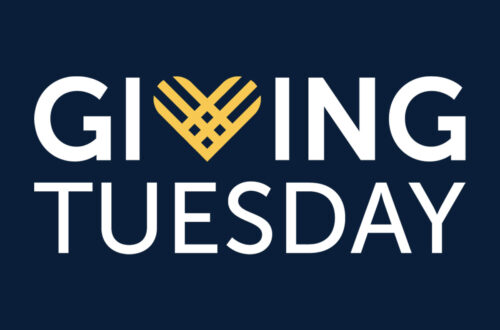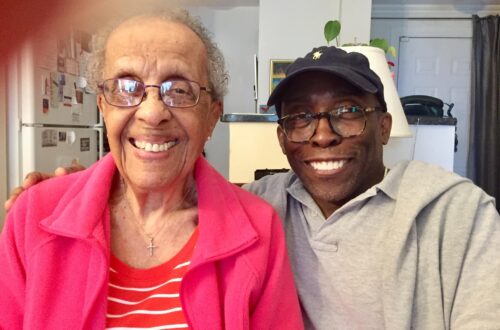Palm Sunday, 2018. I forget exactly when I started closing my essays with the words “love one another,” but what follows is a redux of an essay I wrote on June 26, 2016, days after the Pulse shooting, that lays out my interpretation of those three little words. Plus with Easter coming up on Sunday, it’s kinda relevant. Enjoy.
It seems that some churches have had a difficult time figuring out how to respond to the Pulse massacre. The answer is, to quote Jesus, “love one another.” There it is. Three words. It doesn’t get any simpler than that. I’m no Biblical scholar, but this one seems to be … well … a no-brainer.
On the night before his crucifixion, Jesus says “love one another” to his Disciples not once, but twice. If memory serves me correctly, Jesus and the Disciples are in the upper room celebrating Passover and he tells them that he’s going to be betrayed by one of them (Judas). Once Judas leaves to do his deed, Jesus tells the rest of them he alludes to his upcoming crucifixion and says —
A new command I give you: Love one another. As I have loved you, so you must love one another. By this everyone will know that you are my disciples, if you love one another.
— John 13:34,35
Let’s take a closer look at that.
Jesus uses the word love four times in three sentences. My guess is Jesus wanted to impress upon his Disciples the importance of what he was saying. And to really get their attention he begins with “a new command.”
Woa.
Jesus is not offering a suggestion or making a request or a doling out a helpful hint. It’s a command. A direct order. That means squabbling over any fine points is not an option. It’s not up for debate. There’s no wiggle room on the matter.
Jesus goes even further and tells them how to love another. He must have been pretty familiar with humans to know that when given the opportunity, we humans will always take the route of least investment of time, energy, or resources when it involves serving someone else. And so there’d be no room for misinterpretation, he gives very specific parameters for how to love, “as I have loved you.”
How did Jesus love?
Lavishly. Extravagantly. Ultimately, he laid down his life for the sins of the world, but before then went out of his way to share the good news. His love was active. He didn’t sit in the temple waiting for people to find their way to him. He sought them out. He fed people when they were hungry, healed them when they were sick, and calmed raging storms said storms scared the crap out of people. He celebrated with people and he wept with them. He loved them when- and wherever he encountered them, which more often than not was usually at their point of need. The Disciples had been with him for three years, they saw firsthand how radically inclusive his love was. He chided them on more than one occasion about admonishing him about loving those society deemed unloveable, unworthy, disposable, or otherly.
Say what you want about Jesus, but one thing you can not deny is that he was compassionate. The Gospels are full of stories of him meeting people right where they were in their circumstances. He didn’t say, “go pull yourself up by your own bootstraps, get your life in order, and then we can talk.”
No. He loved people just as they were. His concern was building a relationship with them so that he might introduce them to the Father.
Okay, and then he wraps it up his command to love one another by telling his Disciples, “if you do this everyone will know you are my Disciples, if you love one another.” To me it’s like he’s saying, you want people to know that you believe in me and my teachings — it’s not in what you wear or what you say or what you have — it’s all in how you demonstrate my love to others.
And if that’s not enough, just before Jesus is arrested, and hauled off for a sham of a trial and his crucifixion, he says it to them AGAIN —
My command is this: Love each other as I have loved you.
— JOHN 15:12
It doesn’t get any simpler than that. It can’t.
Looking back over the past two weeks I’ve seen selfless acts of compassion by people who used what they had in loving service to others. I know people who gave of their time and themselves in counseling the grieving, encouraged doctors and medical staff at the hospitals, delivered water to people at vigils, made phone calls, delivering sandwiches. There are thousands of stories of abject compassion in Orlando in response to the Pulse attack.
But there are also incidents of people sitting on their hands as if waiting for a directive from on high. And that makes me furious. When churches and the people who lead them, the very people who are supposed to be emissaries of Christ to a dying world, sit back and wait to see how everyone else is going to respond, anything that follows the call of the media rings opportunistic to its core. When the “worst mass shooting in American history” happens on your doorstep and it’s days before you make a statement via social media that’s not leading a community, that’s following a trending topic. When you toss word salads that speak of standing in support with blah, blah, blah … those words ring hollow. Guess what. There are buildings and bridges the world over that stand in support, too.
The reason I bring up social media is that’s the least labor intensive and most expedient means of getting a message out to the world. With the advent of smart phones and social media years ago, when an event transpires in your backyard that is the lead story for every major media outlet on the planet and you remain silent, you do the cross of Christ a disservice and your actions can be taken one of two ways: 1) you must be living in a cave or 2) you’ve opted to firmly plant your head in the sand up to your shoulders. Some would say there’s a third option: you don’t know how to respond. But I’m not buying that. Because if you’re any sort of Christian, you’re all too familiar with scripture so you know how to respond — with extravagant love and compassion.
One thing I’ve noticed time and time again here in Orlando over the last few days, is a crazy outpouring of love by everyday people who simply gave what they had in support of the victims, their families and loved ones, and first responders — people they didn’t know. The most compassionate demonstrations of love weren’t branded, packaged, and publicized. They were kind and simple deeds that occurred when people showed up, made themselves available, and served. And the people who did these deeds were young and old. They came from every ethnicity. They were rich, poor, straight, gay, et cetera. They were humanity at its best.
Church leaders, all you have to do is show up with a willing spirit and God will give you the answers you need. Some would have you believe this is about extreme left or right social or political agendas.
Wrong!
It’s neither. And shame on those of you who’ve fallen prey to that lie.
Your agenda is loving people, and that love, Christ’s love, supersedes all else. Fifty people died in the early hours of June 12, 2016, and at least another fifty-three were wounded. The fact that the killings occurred in a gay bar should be deterrent to action. What happened was an attack on humanity. It seemed not to matter to law enforcement or medical personnel. They served.
Christ’s command to love includes “all,” not all of one kind. Christ included no proviso about the exclusion of members of the LGBT community. Family members, friends, and loved ones have lost people close to them. If you’ve lived any length of time you know how traumatic losing a loved one is. Think for a moment what it would have been like for you had a loved one who had been gunned down. The pain of the victims’ families exceeds that imagined experience exponentially.
Stop the pretending. Stop the show biz. Stop the media whoring and get about the real business of your calling: extending the love of Christ to everyone.
I’ve never gone through anything like this before. The closest thing that comes to mind are the events of 9/11 and it’s taken America a very long time to come to grips with what happened. I suppose it’s going to take The City Beautiful a very long time to recover from this tragedy — but I’m confident that with God’s help, we will. And if you think that your work is done, you are sadly mistaken. Your work has only begun. Your response in the upcoming weeks and months will prove whether your actions were from the heart or for the media.
I honestly believe Orlando won’t be known for the “worst shooting incident in U.S. history.” The residents of my hometown aren’t going to embrace that label, not in the least. Based on what I’ve seen so far, Orlandoans will be known for our compassion and transcendent love for one another.



